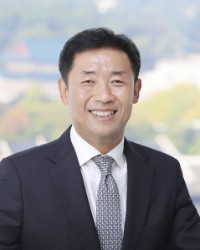Oil, Gas and the Transition to Renewables 2025
South Korea
1. General Structure of Hydrocarbon Ownership and Regulation
1.1 System of Hydrocarbon Ownership
When viewed together, Korea’s Submarine Mineral Resources Development Act (the “SMRDA”), Mining Industry Act (the “Mining Act”), Korea National Oil Corporation Act (the “KNOC Act”), and the Korean Constitution firmly place de facto ownership and exploitation of domestic hydrocarbons in the national government’s ledger.
Korean governmental agencies and state-owned enterprises (“SOEs”) have an inside track on exploration, and the Korean central government generally takes exclusive rights to mine and extract newly-discovered hydrocarbon resources (subject to certain temporary concessionary rights that may be granted to private entities). This general principle of default government ownership applies to hydrocarbons discovered both on land and in Korean “public waters” (ie, in both territorial waters and in Korea’s exclusive economic zone).
In Korea, legal ownership and exploitation rights relating to domestic hydrocarbons are allocated to the national government (rather than to provincial or local governments). No exceptions are made with respect to the Jeju Special Self-Governing Province.
1.2 Regulatory Bodies
Korea’s Ministry of Trade, Industry and Energy (the “MOTIE”) is the primary central governmental agency responsible for regulating hydrocarbon activity in Korea, and most related matters (other than safety inspections and certain security measures) are delegated to the MOTIE’s Bureau of Resources Industry Policy.
With the inauguration of the new Lee Jae Myung administration (following a snap election in the wake of the former president’s impeachment for the sudden and unconstitutional imposition of martial law) on 4 June 2025, it seems likely that certain functions of the MOTIE will combine with elements of the Ministry of Environment (the “MOE”) to form a new ministry (possibly to be christened the “Ministry of Climate and Energy”), perhaps as soon as within 2025. It is expected that this new ministry, if and when formed, would act as the nation’s primary regulator of the domestic hydrocarbon industry.
1.3 National Companies
The Korea National Oil Corporation (“KNOC”) and the Korea Gas Corporation (“KOGAS”) are the national champion oil and gas SOEs. KNOC is responsible for upstream exploration, and KOGAS leads the charge on gas trading, including both urban gas and gas imports and exports (Korea is consistently ranked in the top three countries globally for LNG imports). KNOC is wholly government-owned, whereas KOGAS has private minority ownership.
1.4 Principal Hydrocarbon Law(s) and Regulations
Upstream
The SMRDA principally governs the exploration of hydrocarbons in Korea’s “public waters”, which form the venue for most meaningful domestic upstream activity. In the less common event of onshore exploration, the Mining Act governs.
Midstream and Downstream
Regulation of Korea’s midstream and downstream hydrocarbon sectors primarily falls under the Petroleum and Alternative Fuel Business Act (the “PAFBA”), the Urban Gas Business Act (the “UGBA”), and the Safety Control and Business of Liquefied Petroleum Gas Act (the “LPG Act”).
2. Private Investment in Hydrocarbons: Upstream
2.1 Forms of Private Investment: Upstream
The MOTIE may grant certain time-limited concessionary rights for specific upstream hydrocarbon exploration and subsequent extraction projects in accordance with the requirements and procedures set out in the SMRDA (with respect to offshore exploration) or the Mining Act (in relation to onshore exploration).
The maximum period for exploration concessions is 10 years, and the maximum period for extraction concessions is 30 years, respectively. Such periods may, however, be extended with regulatory approval and may also be shortened in certain instances (such as in the case of the Donghae-1 gas field, which commenced commercial operations in 2004 but was officially shut down in 2021 due to depletion of the natural gas reservoir).
2.2 Issuing Upstream Licences/Obtaining Hydrocarbon Rights
The MOTIE oversees the issuance of upstream licenses for the exploration and extraction of hydrocarbons in Korea, both onshore (pursuant to the Mining Act) and offshore (in accordance with the SMRDA). Any approved application requires a satisfactory review of the relevant business plans and is subject to an applicant's demonstration of requisite technical and financial capabilities.
2.3 Typical Fiscal Terms: Upstream
Applicants who are awarded extraction concessions under the SMRDA or the Mining Act will be required to pay quarterly royalties or concession fees to the MOTIE, based on predetermined formulae that take into account factors such as sales price and production volumes.
Given the relative lack of upstream hydrocarbon projects in Korea, it is difficult to comment on “typical” fiscal terms with much more specificity.
2.4 Income or Profits Tax Regime: Upstream
Upstream projects are, in principle, subject to general corporate taxation rules. However, Korea's Restriction of Special Taxation Act may exempt customs duties and value-added taxes for offshore extraction concessionaires with respect to eligible imports of certain project-related machinery or equipment.
Additional local and national tax incentives, as well as various business subsidies, may also be available to qualifying foreign investors; however, these are generally not specific to the hydrocarbon industry.
2.5 Federal or State Companies
KNOC and KOGAS, to varying degrees and subject to an array of qualifications, may be entitled to not only operate as first movers in applicable upstream exploration and extraction endeavors (in their respective capacities as SOEs), but may also entitled to certain and streamlining of administrative procedures that would generally apply to private enterprises developing exploration or extraction projects in Korea.
2.6 Local Content Requirements: Upstream
No explicit local content requirements apply to upstream hydrocarbon projects in Korea.
2.7 Development and Production Requirements
Although specific requirements vary depending on the type, location, and scale of a given project, as noted above, successful upstream projects are subject to the satisfactory approval of business plans, demonstrating adequate technical and financial capabilities, and ultimately, the payment of quarterly royalties or concession fees to the MOTIE. Various additional licenses, permits and consultative procedures must also be met in order to proceed with specific development operations.
2.8 Other Key Terms: Upstream
In addition to the maximum concession periods and quarterly royalty or concession fees mentioned above, the SMRDA also requires upstream project owners to pay certain fees for submarine mining concession rights.
2.9 Transfers of Interest: Upstream Licences and Assets
Ownership interests are generally transferable, provided that MOTIE approval may be required for the transfer of rights relating to, for example, offshore exploration or extraction businesses. In considering whether to grant such approvals, the baseline for MOTIE consideration is demonstration of the qualifications that would apply to a prospective concessionaire seeking approval to engage in the applicable project (including, without limitation, technical and financial capabilities).
2.10 Restrictions on Production Rates
Although there are no fixed legal or regulatory restrictions on production rates, the MOTIE may impose restrictions on production rates at its discretion when granting the underlying concession rights.
3. Private Investment in Hydrocarbons: Midstream/Downstream
3.1 Forms of Private Investment: Midstream/Downstream
There is neither a government nor a private monopoly in midstream/downstream operations. However, businesses often operate projects with KNOC or KOGAS.
There is a separate regulation on LNG downstream. In particular, to import LNG into Korea, a business must first obtain a license from the MOTIE in accordance with the UGBA. However:
- only KOGAS is allowed to import LNG for wholesale distribution as Korea’s “urban gas retailer,” which is obligated to supply gas (re-gasified at LNG receiving terminals) to city gas companies; and
- as an exception, independent power producers such as POSCO, GS Energy and SK E&S or petrochemical manufacturers may import LNG only for their own use with MOTIE approval.
A key license required for the retail of LNG in Korea, the City Gas Business License, is issued not by the MOTIE but by the head of the applicable local government unit (eg, the city mayor or provincial governor) with jurisdiction over the applicable service area. This license grants a city gas company the exclusive right to supply gas in a specific service area, which is accompanied by an obligation to supply city gas to that service area.
3.2 Downstream Operations Run by a National Monopoly: Rights and Terms of Access
As noted above, with respect to downstream LNG operations:
- KOGAS has a de facto exclusive right to import LNG (except for direct imports allowed to certain industrial consumers for their own consumption) and supply re-gasified LNG to city gas companies; and
- city gas companies have the exclusive rights to supply gas to consumers.
In this context, the UGBA led to the creation of the National Gas Supply Regulation, which establishes the general terms and conditions for the supply of natural gas by KOGAS. Additionally, the City Gas Supply Regulation sets forth the terms and conditions governing the distribution of city gas to both residential and industrial customers by city gas companies. Each city gas company drafts and proposes its own regulation, which must then be approved by the local government that oversees the company.
These regulations provide detailed standards for the supply period, volume, and metering, among other aspects, pursuant to which LNG is supplied.
3.3 Issuing Midstream/Downstream Licences
Please refer to our response to 3.1 Forms of Private Investment: Midstream/Downstream.
3.4 Fiscal Terms and Commercial Arrangements: Midstream/Downstream
Regarding midstream operations, our responses regarding upstream operations in 2.3 Typical Fiscal Terms: Upstream are generally applicable.
Regarding downstream operations, the license referenced in our response to 3.1 Forms of Private Investment: Midstream/Downstream above does not have any specific expiry date.
3.5 Income or Profits Tax Regime: Midstream/Downstream
There is no particular income tax regime applicable to midstream/downstream hydrocarbon operations in Korea.
3.6 Special Rights for National Companies
In Korea, there are no special rights granted to the national oil or gas company in connection with midstream/downstream operations other than KOGAS’ de facto exclusive right to import LNG (except for direct imports allowed to certain industrial consumers for self-consumption) in connection with LNG downstream operation as explained in our response to 3.1 Forms of Private Investment: Midstream/Downstream.
3.7 Local Content Requirements: Midstream/Downstream
No such local content requirements apply to midstream/downstream operations by private investors in Korea.
3.8 Other Key Terms: Midstream/Downstream
Please refer to our response to 3.2 Downstream Operations Run by a National Monopoly: Rights and Terms of Access.
3.9 Condemnation/Eminent Domain Rights
There is no condemnation/eminent domain right specifically established for private investors constructing infrastructure projects in Korea generally. However, certain large-scale projects, following the obtainment of approval from the central or local government in accordance with the Act on Public-Private Partnerships in Infrastructure or the National Land Planning and Utilisation Act, may be granted with certain condemnation/eminent domain rights.
3.10 Laws and Regulations Governing Transportation
Generally, the MOTIE governs hydrocarbon transportation, while the Urban Gas Business Act oversees urban gas transportation and quality standards.
Additionally, the Oil Pipeline Safety Control Act handles matters relating to the management of pipelines.
3.11 Third-Party Access to Infrastructure
Please refer to our responses to 3.1 Forms of Private Investment: Midstream/Downstream and 3.2 Downstream Operations Run by a National Monopoly: Rights and Terms of Access.
3.12 Restrictions on Product Sales: Local Market
Any person who intends to import petroleum or petroleum products must register as a petroleum exporter/importer in accordance with the PAFBA. Apart from this requirement, there are no other particular restrictions.
Anyone intending to sell petroleum products to general consumers (supplied by petroleum refiners or exporters/importers) must register as a petroleum retailer. However, if an individual is already registered as a petroleum refiner or exporter/importer, this registration requirement will be waived.
In case of LNG, please refer to our responses to 3.1 Forms of Private Investment: Midstream/Downstream and 3.2 Downstream Operations Run by a National Monopoly: Rights and Terms of Access.
3.13 Laws and Regulations: Imports and Exports
If a company desires to export LNG, the company must register with the MOTIE as engaging in the “business of exporting and importing natural gas” under the UGBA.
Similarly, any exportation of crude oil requires registration with the MOTIE, as it involves engaging in the “business of exporting and importing petroleum” under the PAFBA.
3.14 Transfers of Interest: Midstream/Downstream Licences and Assets
There is no particular restriction applicable to transfers of interests in midstream/downstream licenses and assets. However, regarding LNG, if a city gas company intends to transfer its business, it must report this to the MOTIE (or the head of the local government in the case of a general urban gas business).
4. Foreign Investment
4.1 Foreign Investment Rules Applicable to Domestic Investments in Hydrocarbons
When a foreign investor intends to invest in Korean companies, either through incorporation or the acquisition of existing shares, it may choose to make a foreign direct investment under the Foreign Investment Promotion Law (the “FIPL”).
The FIPL and related regulations stipulate that a purchase of shares in a Korean company (whether listed or non-listed) by a foreigner is classified as a “foreign direct investment” if:
- the amount of such shares being purchased will be equal to or greater than 10% of the then-outstanding voting shares of such Korean company; or
- the amount of shares being purchased is less than 10% but the foreign purchaser intends to participate in the management of such Korean company (which is generally evidenced by its appointment of one or more directors thereof); and
- the investment value is KRW100 million or more.
Under Korean law, certain industries are subject to foreign ownership limitations, as specified in laws applicable to these companies. However, there are no such limitations generally applicable to the hydrocarbon industry in Korea.
4.2 Sanctions
The Korean government imposes strict sanctions on investing in oil and gas assets in North Korea and conducting business in the oil and gas sector with North Korean counterparties. In addition, the Guideline for Payment and Receipt to Participate in International Peace and Security issued by the Ministry of Economy and Finance (2018) restricts trade and other certain commercial activities in Iran or with/against certain Iranian persons that are subject to US and/or EU sanctions, which may limit Korean businesses to conduct business activities in the oil and gas sector.
5. Environmental, Health and Safety (EHS)
5.1 Environmental Laws and Environmental Regulator(s)
The major environmental laws applicable to upstream/downstream operations in the hydrocarbon industry are summarised as follows.
Upstream
Environmental Impact Assessment Act (EIAA)
This statute requires large-scale projects to conduct an environmental impact assessment in order to protect the environment. The MOE is responsible for enforcing this statute.
Act on Conservation and Utilisation of the Marine Environment (ACUME)
In addition to the Environmental Impact Assessment Act, this statute outlines general principles for conserving and utilising the marine environment, ensuring that the seas are managed systematically and sustainably. The Ministry of Oceans and Fisheries (MOF) is responsible for enforcing this statute.
Maritime Environment Management Act (MEMA)
Regarding marine projects, this statute establishes detailed standards for the prevention, improvement, response, and recovery with regard to marine pollution by managing the discharge of marine pollutants (eg, oil and hazardous liquid substances), etc. The MOF is responsible for enforcing this statute.
SMRDA
As explained above, this statute prescribes specific requirements applicable to the exploitation/mining of minerals. The MOTIE is responsible for enforcing this statute.
Downstream
The EIAA and the MEMA apply to downstream operations.
5.2 Environmental Obligations for a Major Hydrocarbon Project
Under the EIAA, an environmental impact assessment must be conducted when a project aims for energy development by engaging in businesses associated with the exploration/mining of submarine minerals (ie, processing, transportation or storage).
An owner of such a project must prepare a draft environmental impact assessment report in accordance with the guidelines published by the MOE. Thereafter, the project owner must gather/reflect opinions from local residents, and obtain a final approval from the Minister of Environment. During this process, the Minister of Environment may impose restrictions on the project under applicable circumstances, which the project owner must incorporate into their business plan.
5.3 Offshore Environmental, Health and Safety (EHS) Requirements
The Mining Safety Act applies to environmental, health, and safety issues related to upstream oil and gas activities. A mining concession right holder must take necessary measures for the following purposes:
- prevention of cave-in, collapse, spring water, gas leakage, explosion of gases or coal dust, spontaneous combustion, and fire, and maintaining ventilation;
- prevention of hazards and mining damages, which may be accompanied by the treatment of gases, dust, noise, vibration, waste rocks, mine wastes, mine water, waste water and metallurgical smoke;
- prevention of hazards that may accompany the handling of machines, equipment, explosives and other materials, power and fire;
- preservation of mining facilities;
- establishment of rescue teams, securing of safety equipment, provision of safety education to miners, and enactment of safety regulations;
- protection of underground resources; and
- prevention of mining damages and other safety measures.
5.4 Decommissioning Requirements
Pursuant to the Mining Act and the SMRDA, a mining concession right holder must restore the mining area to the original state (eg, retrieving artificial structures, equipment, facilities, etc) upon the expiration of the concession right. If the mining concession right holder fails to do so, the MOTIE may order the mining concession right holder to restore the mining area within a designated period (up to one year).
On a related note, Korea’s Mining Damage Prevention and Restoration Act obligates the mining concession right holders to implement a mining damage prevention plan (otherwise known as a decommissioning plan), which includes:
- prevention of mining damages that occurred or are expected to occur in active, inactive, or abandoned mines;
- restoration of deteriorated mining areas; and
- removal and disposal of facilities, materials, and other items that are not in use. Moreover, the mining concession right holders must bear 20%-40% of the project costs under the above mining damage prevention plan.
5.5 Climate Change Laws
The Framework Act on Carbon Neutrality and Green Growth to Cope with Climate Crisis (“Carbon Neutrality Act”) sets forth Korea’s carbon neutrality goals and regulatory foundations for transitioning into a carbon-neutral society. The ACUME further requires the central/local governments to develop policies necessary for investigation, impact assessment, and adjustment of the marine environment in response to climate change pursuant to the Carbon Neutrality Act.
Please also refer to the CCS-related plan announced by the MOE, explained in our response to 6.3 Other Energy Transition Considerations.
5.6 Local Government Limits on Development
As indicated above, the MOTIE is the government agency with sole authority to grant hydrocarbon concession rights in Korea. However, local governments may also restrict projects during consultations on environmental impact assessment or the issuance of permits for occupying certain public waters.
6. Impacts of Energy Transition
6.1 Energy Transition Laws and Regulations
On 27 February 2025, the National Assembly of the Republic of Korea passed:
- the Special Act on the Promotion of Offshore Wind Power Distribution and Industrial Development (the “OSW Promotion Act”); and
- the Special Act on the Expansion of the National Power Grid (the “National Power Grid Act”).
Under the Offshore Wind Power (OSW) Promotion Act, offshore wind power generation projects (referred to as “OSW Projects”) can only be developed in designated areas known as “Power Generation Zones.” The MOTIE is responsible for designating these zones. To streamline the permitting process for OSW Projects, a special committee will be established. This committee, known as the OSW Power Generation Committee, will comprise the Prime Minister and representatives from key regulatory bodies involved in the licensing and permitting of OSW Projects, including the MOTIE, MOF, MOE, and the Ministry of National Defence. The OSW Promotion Act establishes a process through which the government may designate Power Generation Zones and facilitate the fast-tracked development of OSW Projects within these zones.
In the context of the National Power Grid Act, it should be noted that the Electric Power Source Development Promotion Act (the “EPSDP Act”) has been in place in order to enable the Korean government to “fast-track” the development of certain power generation or transmission projects deemed to be of strategic importance.
The fast-track elements of the National Power Grid Act are only applicable to projects undertaken by Korea’s state-owned utility, Korea Electric Power Corporation (“KEPCO”). To expedite the development process, the National Power Grid Act provides for certain mechanisms which extend the scope of the existing framework provided by the EPSDP Act, including:
- streamlining of permitting procedures; and
- expansion of deemed permits and licenses.
6.2 Energy Transition and Oil and Gas Development
Natural gas plays a key role in the energy transition phases:
- natural gas is being used to produce grey or blue hydrogen; and
- natural gas infrastructure is being used to store and transport hydrogen.
In addition, LNG is widely viewed by Korean policymakers as a crucial transition fuel as the nation phases out its past reliance on coal-fired power in favour of carbon-neutral energy sources in pursuit of its carbon neutrality targets.
6.3 Other Energy Transition Considerations
Major changes to energy and greenhouse gas emission policies are expected in Korea within the next few years. In Korea, approximately 800 major companies currently emit 73% of greenhouse gases (eg, CO₂), and these companies are regulated under the emission trading scheme. Until the prior administration (ie, former President Yook Suk Yeol’s administration), the reduction requirements were imposed on a case-by-case and “relaxed” standard of the emission trading scheme.
With the launch of the new administration under President Lee Jae-myung, however, it is anticipated that more stringent emission requirements will actually be imposed on the major companies. The companies involved in certain business sectors, such as power generation, chemicals, cement production, and energy production, currently emit the majority of greenhouse gas emissions in Korea. These companies will likely be required to either reduce their emissions or purchase emission quotas on the emission quota trading market.
7. Additional Information
7.1 Unconventional Interests: Upstream
There are no special schemes relating to unconventional upstream interests in Korea.
7.2 Liquefied Natural Gas (LNG)
There are no special schemes relating to LNG projects. Korea relies on overseas importation for 99.9% of its gas demand, and KOGAS, the government entity responsible for providing a stable supply under the Urban Gas Business Act, is undertaking various projects to import LNG from overseas. Instead, there are multiple regasification terminals and new projects to build the same in Korea.
7.3 Unique or Interesting Aspects of the Hydrocarbon Industry
The MOTIE and the Korea Power Exchange oversee regular competitive bidding for Korea’s clean hydrogen power generation market to further reduce greenhouse gas emissions and enhance the hydrogen ecosystem.
These clean hydrogen auctions opened for the second time earlier this year following the inaugural bidding last year. Key features of this second bidding include certain policy changes designed to improve the bidding process, align more closely with industry needs, and promote competitiveness. Notably, the bidding announcement introduced new measures to mitigate risks that businesses may face, such as the foreign exchange-linked settlement system and the hydrogen volume borrowing system.
7.4 Material Changes in Law or Regulation
See 6.1 Energy Transition Laws and Regulations.
Kim & Chang
39 Sajik-ro 8-gil
Jongno-gu
Seoul 03170
Korea
+82 2 3703 1114
+82 2 737 9091/9092
lawkim@kimchang.com www.kimchang.com




